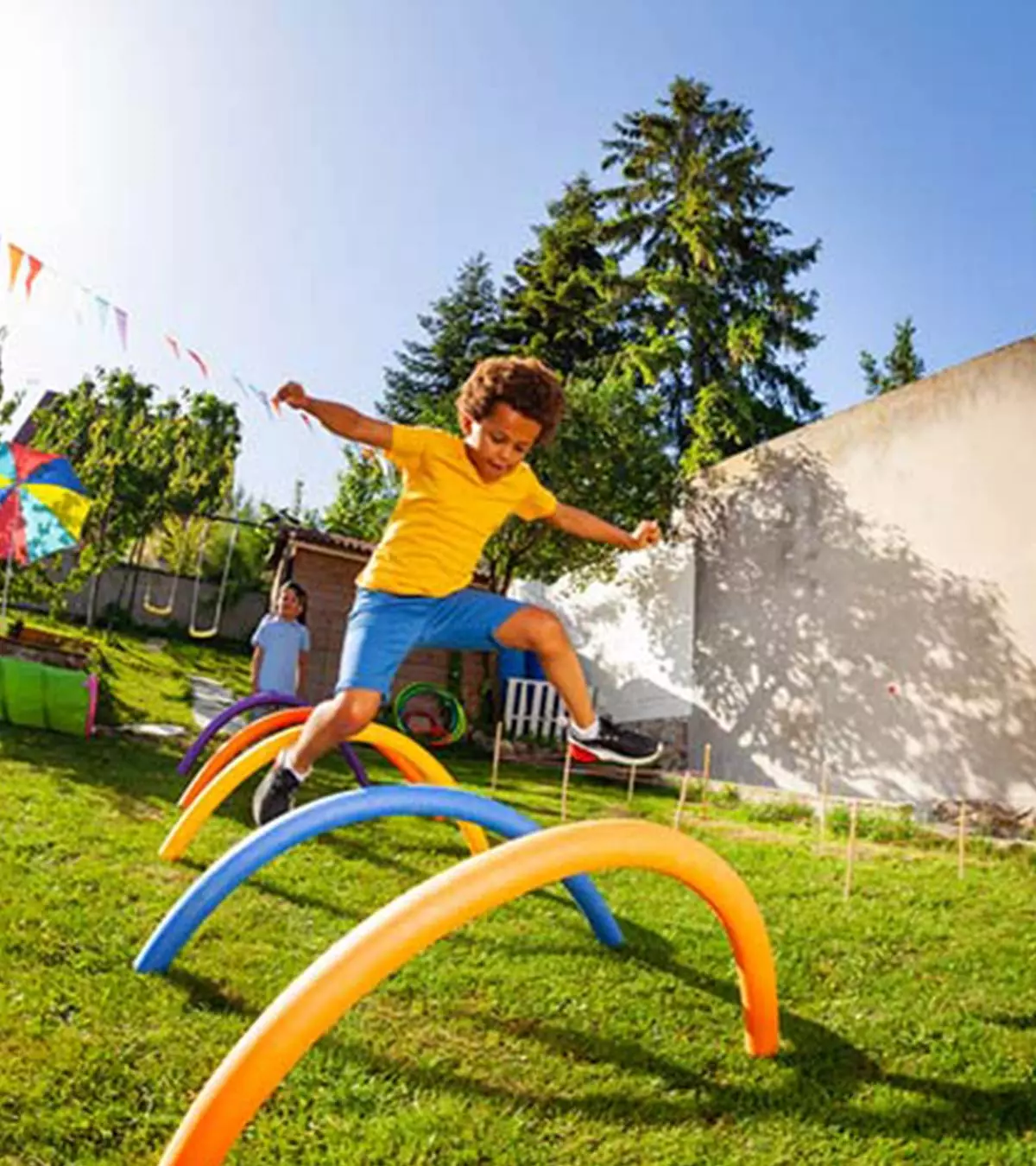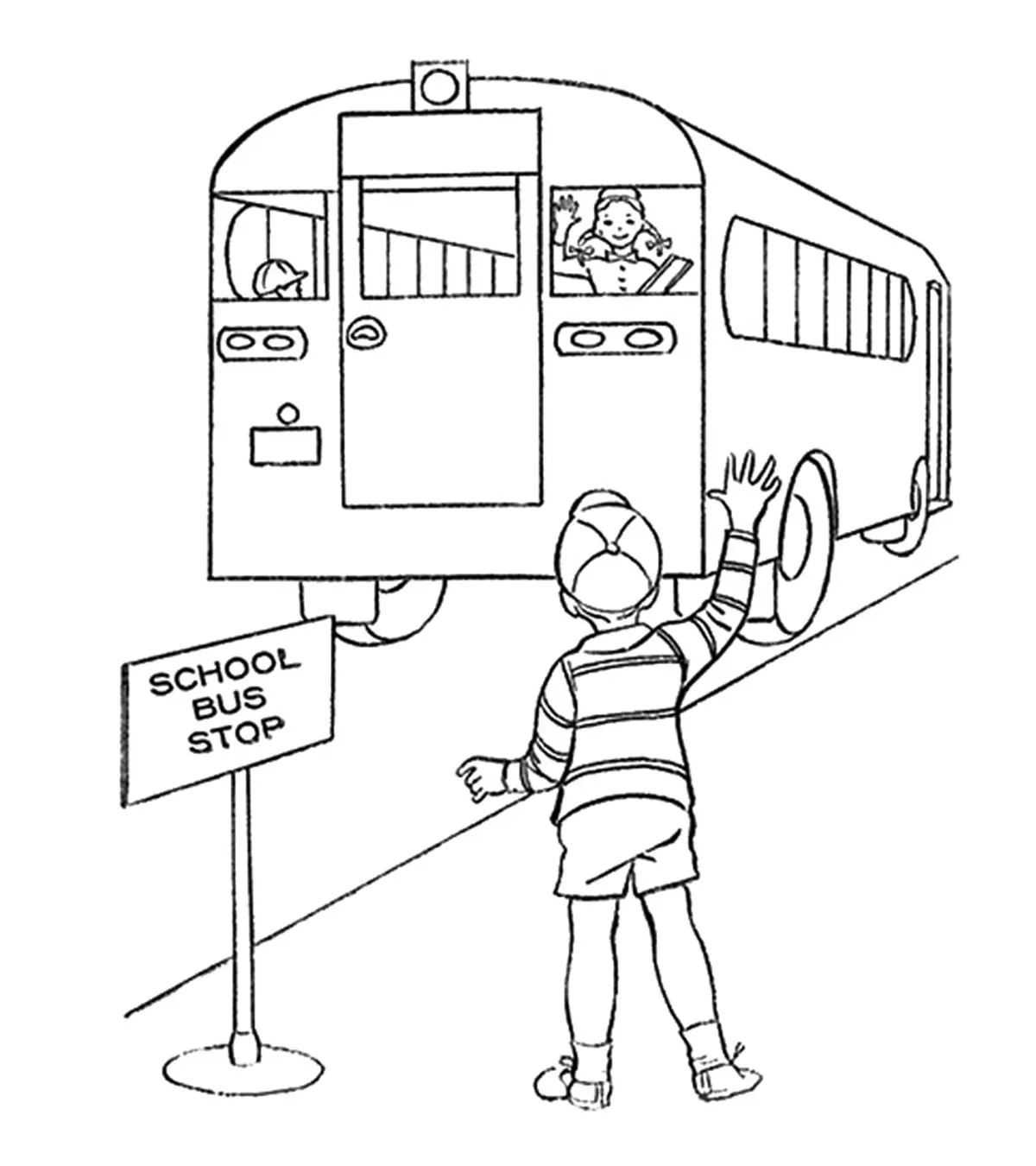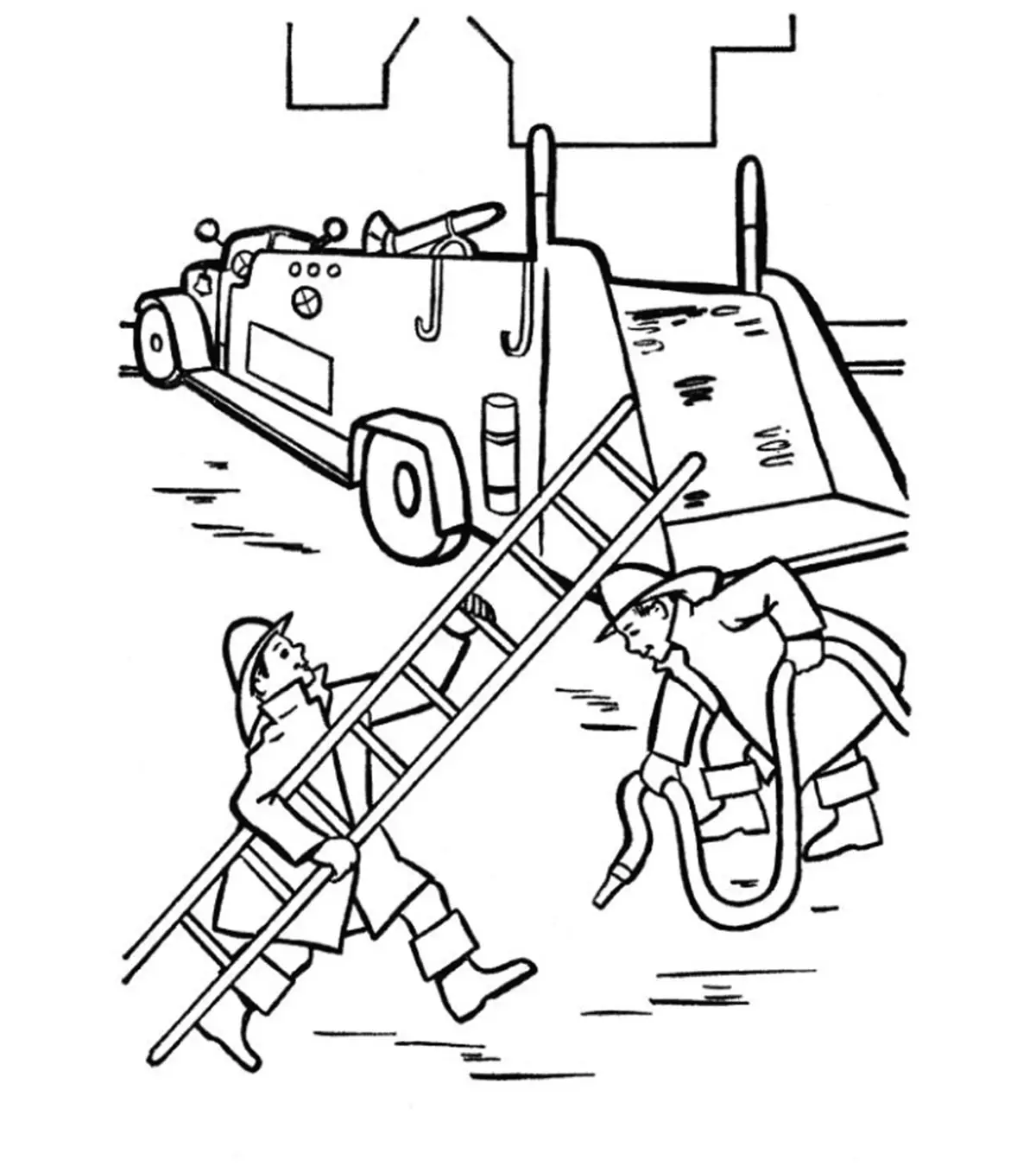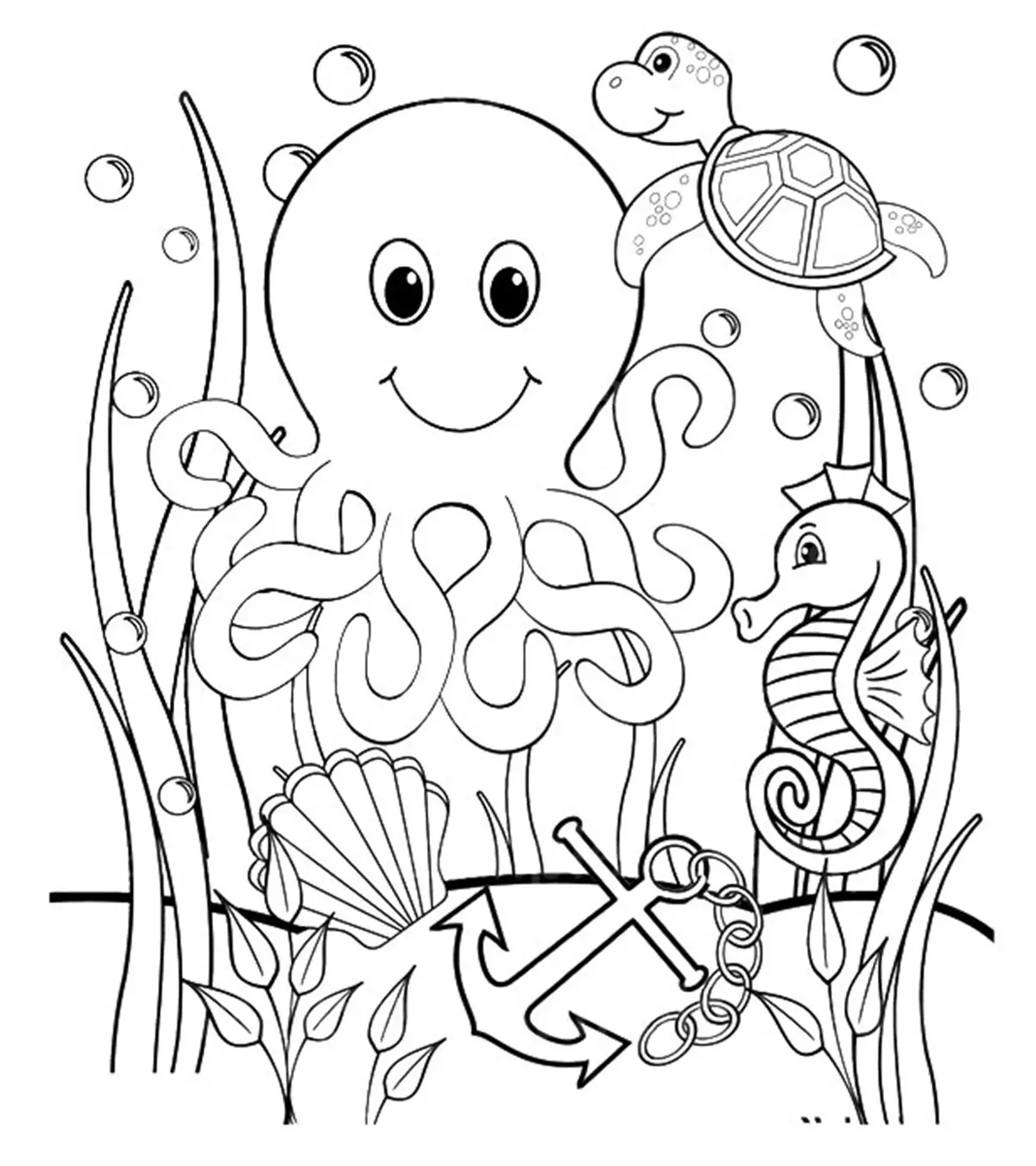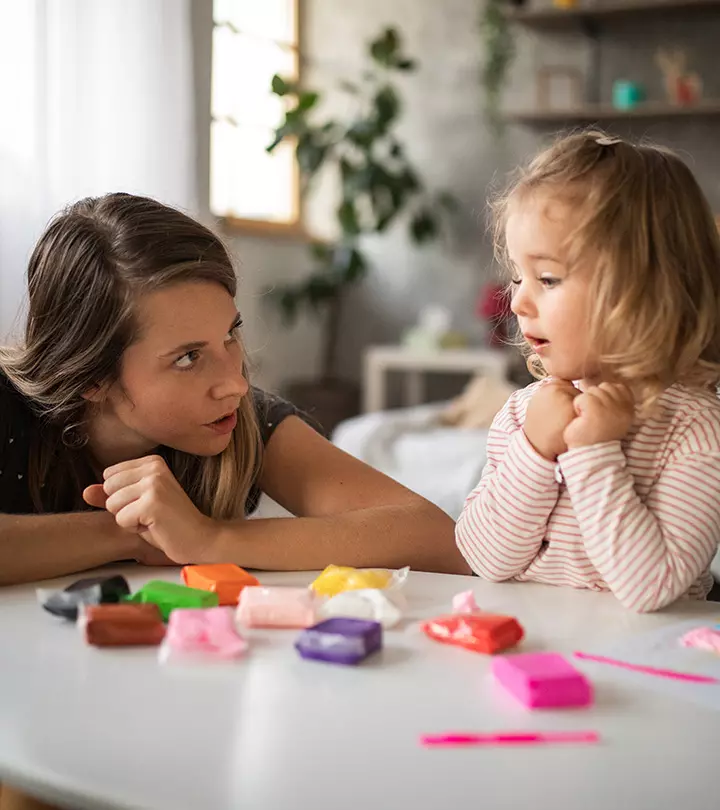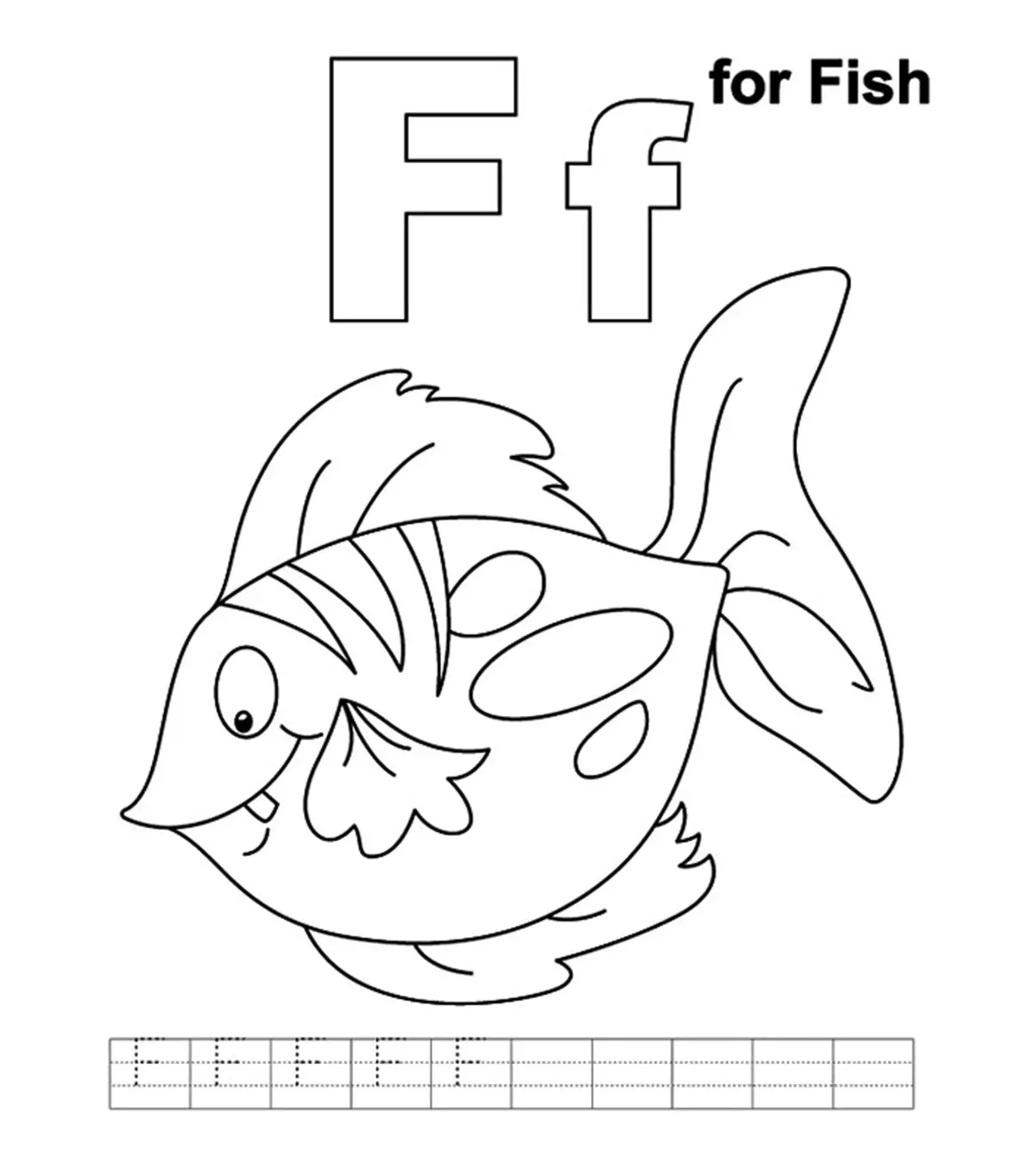
Image: Shutterstock
Six-year-olds can read books independently, speak entire phrases, comprehend numbers, and draw various geometric forms. So, it’s the right time to start laying the foundation for learning by engaging them in different activities for 6-year-olds. You don’t have to always force children to participate in educational activities. There are various other fascinating methods to have fun while learning new things such as learning musical instruments or a new sport like swimming. These activities not only keep them entertained but also help build cognitive, social, and emotional skills. According to Meg Caven from the Institute of Education Sciences, US, learning activities in early school settings are essential for developing key 21st-century skills such as collaboration, communication, and critical thinking. These activities also contribute to children’s social, emotional, language, and math skills (1). Continue reading this post to learn about numerous activities your child would like.
Key Pointers
- Repeating tongue twisters can be fun for a six-year-old, improving reading and memory skills.
- Activities such as Origami and acting out stories will help enhance their communication skills and imagination.
- Introducing them to activities such as New words and Riddles will sharpen their focus and improve their attention.
- Indoor activities like journaling will help in brain development, and outdoor activities like cycling will ensure their physical wellbeing.
32 Activities For Six-Year-Olds
Fun Activities
One of the most important activities that your child should do is play.
But as parents, you may want them to learn something while playing. We have some fun learning activities that your kid can enjoy while also reaping benefits.
1. Tongue twisters
Tongue twisters for kids are a combination of unusual sounds and are often difficult to pronounce. They are a good way for children to improve their vocabulary and pronunciation. Your six-year-old can have a fun time by repeating the funny tongue twisters and also include the rhythm and sounds while practicing English. It improves reading and memory skills. We have a few for you to try:
- Yellow butter, purple jelly, red jam, black bread.
- Any noise annoys an oyster, but a noisy noise annoys an oyster more.
- A big bug bit the little beetle but the little beetle bit the big bug back.
- Cooks cook cupcakes quickly.
 Did you know?
Did you know?2. Language games
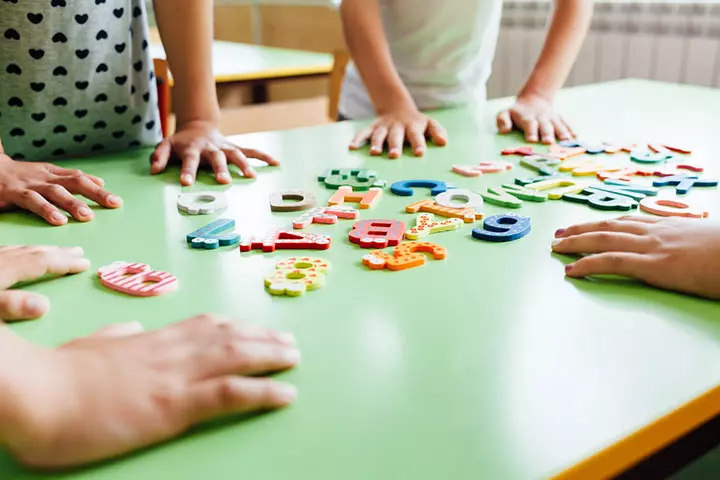
Improving language is not limited to grammar books. Playing language games once or twice a week can provide an interactive learning experience. A paper published in the Rupandehi Campus Journal states that language games help reduce anxiety and improve learning among students. They are effective tools for practicing vocabulary, grammar, and structure in languages. By engaging in these games, students also gain motivation, develop fluency, and improve thier public speaking and social skills (2). Some of the popular language games include:
- Unscramble words: Interchange the letters of simple words and ask your child to find out the correct word in this popular puzzles game.
- Riddles: Make a phrase or describe a thing and let your kid identify the subject.
- Word game: Give a big word and ask your child to come up with a list of words using the word’s letters. For instance, if the word is a COMPUTER, then the words that can be made with these letters are top, put, pet, top, and more.
 Quick fact
Quick fact3. Listening games
Listening is a skill that helps build reading ability, improve speech, and develop social and communication skills. We have a few simple and fun activities that you can try for your six years old child.
- Say a series of words and ask your child to pick the odd one out.
- Word Chain is a fun game that needs careful listening. Start with a random word, and let your child come up with the next term that starts with the last letter. For instance, your word is Apple, the next one would be Elephant, and then Tiger.
- A Line-up story is another exciting game that helps improve language and listening skills. One person has to say a random sentence, and the other has to continue the story by adding a line. The game goes on, and eventually, this storytelling turns out to be funnier than expected.
4. Phonic games
Phonics is the relationship between the alphabet and sounds. Learning to use phonics correctly from a younger age can make it easier for children to spell long and challenging words. Dr. Kirstina Ordetx, a Level 4 Master Instructor with The Institute for Multi-Sensory Education (IMSE), says, “Children who are taught phonics systematically are better able to decode and spell and exhibit improvement in their ability to comprehend text (3).” Here are some creative activities.
- Rhyming words: Rhymes can be a light-hearted way for little ones to understand phonics. Give a list of words on a paper and ask your child to come up with a list of rhyming words.
- I spy: It is one of the best activities that can be played anywhere, be it while traveling or when bored. Make a sound of the word that you want your kid to identify. For instance, say, I spy something that begins with bbb or aaa.
 Quick tip
Quick tip5. Action games
Six-year-old children like to be involved in action-packed games as they are packed with energy and enthusiasm. Such activities also enhance multitasking, improve communication skills, and let the child play and exercise simultaneously. Throw and catch the ball, juggle with a ball or bottle, and treasure hunts are some easy and enjoyable activities.
6. Memory games
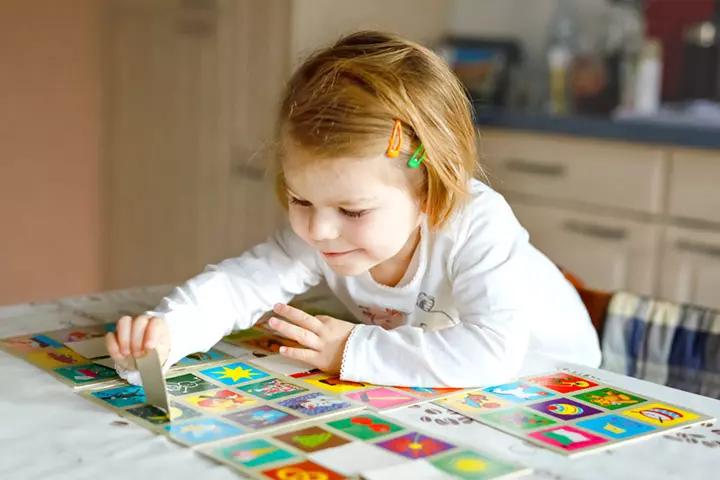
Memorizing words or phrases plays a beneficial role in a child’s development. A study states that memory games help enhance children’s working memory (WM) and show improvements even at a deeper level, with benefits lasting for at least a month (4). You can play memory games with your six-year-old at home, in the park, or while traveling. Spot the difference, magic cup game, and card games for kids are some easy choices to start with.
Art and Craft Activities
Art and craft activities nurture children’s attention, listening, imagination, and communication abilities. These also help your child identify textures, colors, and shapes, build creativity, and improve motor, math, and language skills (5).
7. Origami
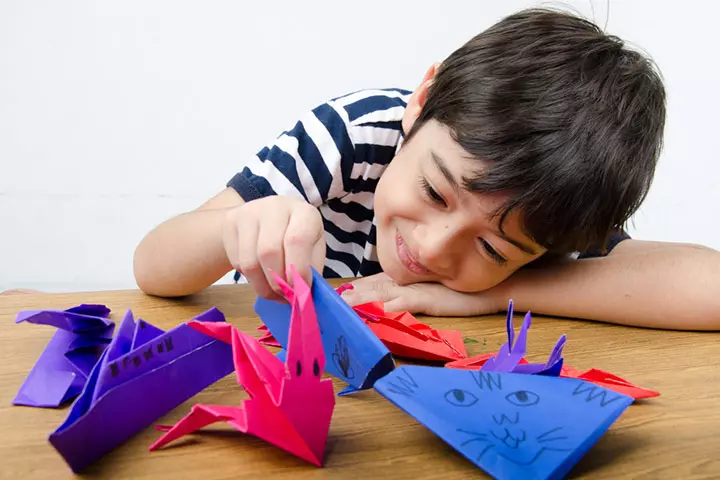
Origami is the art of folding a sheet of paper to make sculptures of animals, birds, or objects. It also brings out the creative side of the child. Give some colorful and smooth-textured sheets of paper to your child, show them how to make an origami (here are some ideas), and let them enjoy it alone or with friends.
8. Drawing
The most basic activity that six years old children can do is to draw and color. This simple activity offers benefits such as improving visual analysis and concentration, strengthening hand-eye coordination, and facilitating the better expression of thoughts and ideas (6).
9. Play with wind vane
When art and craft are merged with science, it becomes one of the best logic-based activities. Teach your child to make a wind vane, an instrument used to show the wind’s direction. All you need is a marker, pointer, and cardboard. It is fun to make and play with.
10. Basic cooking

You can encourage your six-year-old to indulge in cooking as it is one of the most exciting activities ever. However, it requires adult supervision. Let them start with pretend play before they participate in basic cooking activities such as decorating baked items, greasing the pans, dicing soft foods, and mixing ingredients for baking. These are easy and safe activities that steadily develop your child’s interest.
11. Screen games
You can let them play games on the computer, join an online club, and read a book online. However, restrict the screen time to a couple of hours or less. Pick games that you can play with the child or the entire family can play together.
12. Act out stories
Acting out a story that your child has recently read or watched can help them remember it and strengthen their ability to read comprehensions. It is also suitable for their cognitive development (7). You can use props to dress up and make the activity more interesting and amusing. This can be clubbed with puppet shows for an entertaining performance.
Learning Activities
School is not the only place where a child learns new things. You can improve their knowledge and socio-emotional development skills by getting them involved in learning activities at home.
13. Tactile games
Tactile or sensory games stimulate your child’s senses by encouraging them to investigate, question, explore, and create while playing. They also improve children’s problem-solving capacity and motor skills (8). Playing with clay, building blocks, and slimes are some of the simple and fun tactile games they can play.
14. Math games
Learning math can become tedious if your child learns it only at school. You can make it engrossing by playing math games such as Jenga, Dominos, Snakes and Ladders, and Business. There are several math board games and interactive games that you can allow your child to play. They can learn addition and subtraction, shapes and sequences, counting, and number relationships to strengthen their reasoning and problem-solving skills. Don’t forget to give them bonus points for good work!
15. Reading together

Reading from a young age fosters imagination and improves understanding of a language (9). To make reading a compelling activity, you can read stories to your child and ask them to read it to you. Sometimes, you can read the stories together and discuss them, too. Try to make reading a part of your child’s routine.
16. Mirror games
Six-year-old children can enjoy mirror activities in different ways. Mirrors can be used for science experiments for kids and also for some fun time. You can even use spinning tops and flashlights to make reflections. Make your children write the alphabet or numbers on a sheet of paper and let them check what happens when they see them in the mirror. Such activities can be quite intriguing for children.
17. New words
Introduce your children to new words to improve vocabulary and language skills. You can also ask them to use those words in sentences to understand their use. An entertaining way to do it is by picking random words during movie nights and then asking the child to use it in a sentence.
18. Riddles
Riddles can let your child laugh and, at the same time, boost their creative thinking and verbal fluency (10). You can ask riddles to your children or let them create some on their own. Here are a few that you may ask your six-year-old kid.
- Where can you find streets, cities, shops, and towns, but no people? (Answer: Map)
- What has two hands and a face but no legs? (Answer: Clock)
- I am tall when young and short when old? (Answer: Candle)
Indoor Activities
There are plenty of indoor activities for six-year-olds that help improve brain development, language skills, general intellect, and physical development. Not to forget, they are fun-filled, too. However, make sure the play area is safe for indoor activities. Keep sharp objects and heavy furniture away, and always watch your child during activities.
19. Treasure hunt
Treasure hunt or scavenger hunt is one of the most interesting activities for kids in which you have to hide objects and leave a series of clues for your child. Playing the game regularly can help your child with physical exercise, improved attention and creativity, self-confidence, and imagination.
20. Writing in a diary
Your six-year-old child can learn discipline and organize thoughts by keeping a diary. It allows them to be expressive. Writing also provides an opportunity to improve handwriting, vocabulary, and grammar.
21. Cardmaking
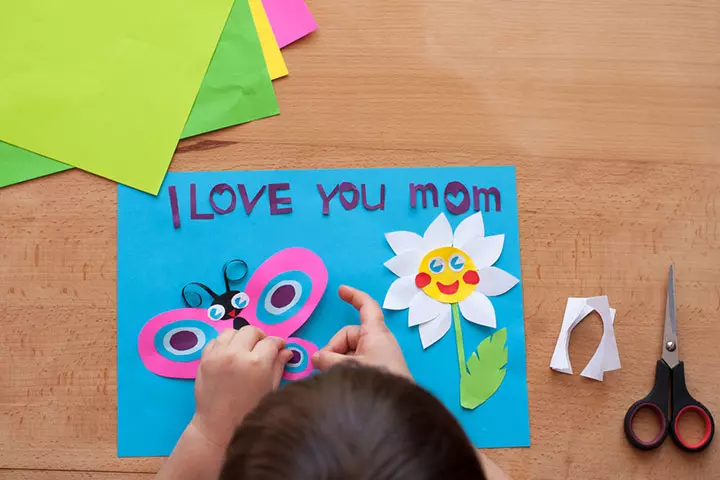
Making a greeting card involves cutting, drawing, coloring, gluing, and getting crafty. It improves your child’s motor skills and power of imagination. Buy colors, glitters, and sheets of paper to make cards for different occasions, such as birthdays, Christmas, Thanksgiving, Mother’s Day, and Father’s day.
22. Board games
Playing indoor board games with family and friends helps improve a child’s problem-solving skills, improves strategy skills and concentration, and strengthens communication (11). Some of the popular ones include Tic-tac-toe, Guess who, Snakes and Ladders, Connect 4, and Scrabble junior.
23. Sculpt with homemade playdough
Playdough is a great way to keep children engaged and entertained. Give them different colored playdough and tools like cookie cutters and rolling pins. Let your child have fun squeezing, stretching, and rolling the dough. Apart from keeping them busy, this activity sparks your child’s creativity and imagination as they turn the playdough into their unique creations.
Outdoor Activities
Playing outdoors is crucial for a child’s overall health and development. Playing in parks and grounds helps children learn new things, develop positive attitude and communication, and create a connection with nature. Joining your child in outdoor activities like cycling or gardening can strengthen your bond and make it more fun while teaching valuable life skills.
24. Visit a museum
Children can learn about history by visiting a museum. It encourages them to ask questions and learn more about the world and the universe. Take your six-year-old to a museum in your town or city and help them compare the past with the present.
25. Gardening
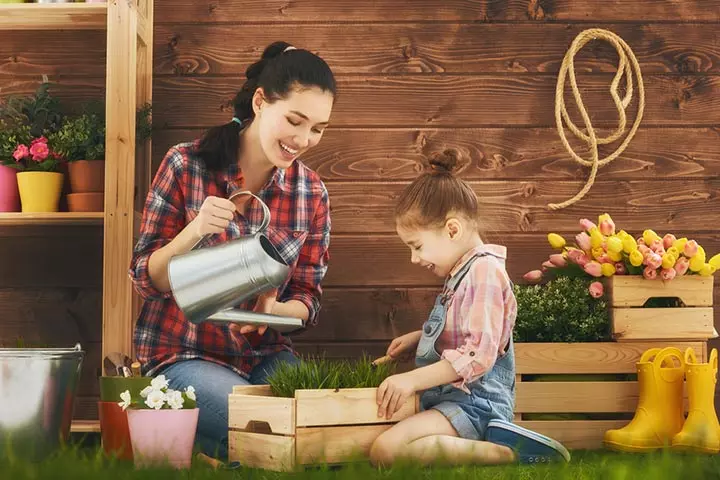
Let your six-year-old get close to nature through this activity. Sowing a seed, mulching, watering plants, and other gardening activities cultivate a unique learning experience. Teach children basic gardening skills to make them understand the importance of nature and love nature.
26. Camping
Give a camping experience to your little ones once in a while. You can start once they are six years old. It helps in unplugging from routine life, motivates them to work in a team, fosters social skills, and helps connect with nature, family, and friends. You can also try fishing. Before you camp outside, you can even build a tent with blankets over two pieces of furniture to make your outdoor sleepovers even more enjoyable.
An anonymous blogger shares how camping can bring positive change in children. She says, “Ever since my 6-year-old boy joined a camp, I noticed that he begins to be more creative (he likes to draw a lot of trees, sunsets, and rivers!) and resourceful. I think he is also more confident about himself. He used to be a bit meek and does not participate much in school. Now, he makes a lot of friends and aces his art class (i).”
27. Obstacle course
Make an obstacle course in the park or backyard of the house and let your child improve their gross motor skills. You can make them hop over the bricks, crawl under the chairs, jump rope, stretch their hands and legs, and twirl around.
28. A family walk
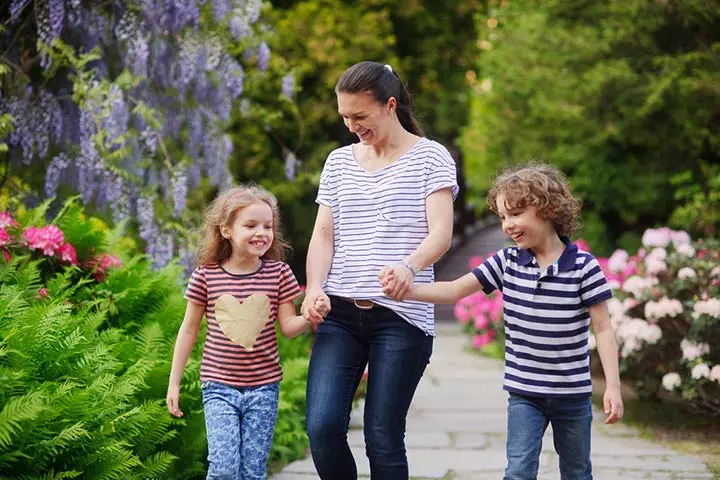
Take your child for nature walks amidst the greeneries or let them practice skating in the rink or the park. Let them talk to you freely, share their feelings, explore nature, touch the flowers and leaves, and breathe in the fresh air. It could strengthen your bond and make them appreciate nature.
29. Picnic with friends and family
A picnic is a wonderful activity to keep children close to nature and loved ones. It is a good opportunity to play games, indulge in singing and dancing, rest, hang around, and relish delicious homemade snacks. This activity strengthens the familial bond and also gives the child a break from the monotonous school life. Children can also try adventure activities like skiing, snowboarding and sledding during the winters under the expert supervision.
30. Cycling
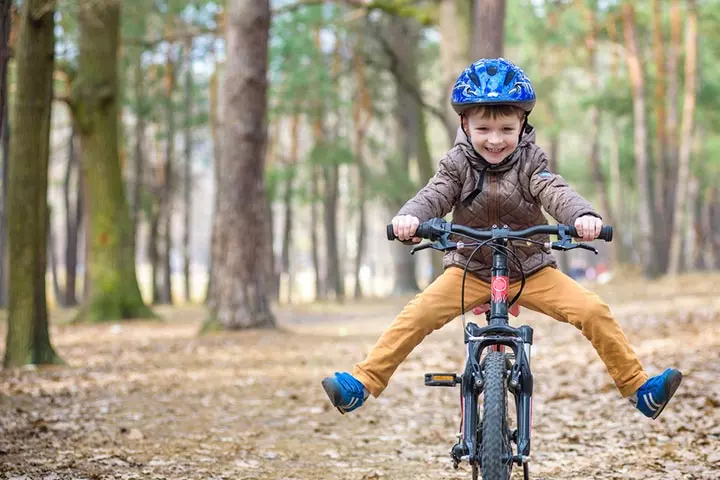
Encourage your six-year-old to cycle to keep them active, build muscle mass, boost confidence, strengthen social skills, improve navigational skills, and have unlimited fun. Once they are comfortable cycling, they can go bike riding with family and friends.
31. Backyard games
Hopscotch, tag, hide and seek, bowling with recycled bottles, tire swing, and water play are a few simple outdoor play activities that you can encourage your child to play. Ask them to call their neighborhood friends or cousins. Let them enjoy, have fun, and cherish their childhood days.
32. Build a sand castle
Children do enjoy playing in the sand! So why not take your children to the nearby beach and let them try their hand at building sand castles? This activity doesn’t need any crafting material. Let them play in a sand pit with other children and create castles that they fancy. Sit with your children and guide them to make sand castles of different sizes and make it an enjoyable bonding time.
How To Incorporate Activities In A 6-Year-Old’s Schedule
Incorporating a mix of structured and unstructured activities into a child’s schedule can ensure their physical, emotional, and intellectual growth while keeping them engaged and happy. Here’s how you can go about doing it.
- Set a daily routine: Establish consistent times for activities and include breaks to avoid burnout.
- Know their preferences: Pay attention to your child’s favorite activities, strengths, and challenges. Use their interests, such as animals, colors, or vehicles, as themes for activities.
- Use different materials: Use blocks, craft supplies, puzzles, etc., to cater to varied interests for indoor activities. For outdoor activities, you may use materials like sand, water, or leaves to encourage open-ended play.
- Balance structure and freedom: Include both guided activities and opportunities for free exploration. For example, let children choose the rules of a game or decide how to approach a task.
- Provide choices: Let children decide how they want to participate in an activity to make them feel involved and celebrate their efforts to build confidence and motivation.
These rejuvenating activities for 6-year-olds can be a great way to activate all their senses. Young children should not be limited to studies and schoolwork, rather they should be exposed to different activities. It will help them gain immense interest in sports and extracurricular activities. Remember that their physical and mental development is possible only when they are more actively involved and interested in doing something they genuinely enjoy. Maybe a little push from your end could help them pursue these interests more seriously.
Frequently Asked Questions
1. What are self-directed activities for 6-year-olds?
Self-directed activities are activities that are planned, initiated, and carried out by the individual themselves. A few self-directed activities for your 6-year-olds include action games, arts and crafts, tactile games, board games, jigsaw puzzles, and screen games.
2. How long should a 6-year-old play games?
Playing games is required for your child’s social, emotional, and physical development. It is important to strike a balance between school work and playing games so that your little one can relax and not be overwhelmed by their daily schedule.
3. What are some quiet activities that my 6-year-old can do alone at home?
Some quiet activities for your 6-year-old include memory games, origami, drawing, playing with wind vane, screen games, writing in a diary, card making, gardening, and cycling.
4. How can I encourage my 6-year-old to be more active and less sedentary?
A few ways you can encourage your little one to be more active can be by being their role model and engaging yourself in physical activities or exercise. Try limiting their screen time so they will look for other ways to have fun, make physical activities fun and entertaining, plan family activities where everyone participates, organize playdates with their friends and try to engage in positive reinforcement.
5. What are some team-building activities that 6-year-olds can do with their friends?
Some team-building activities your 6-year-old can participate in with their friends include listening games, action games, act-out stories, treasure hunts, card making, gardening, camping, an obstacle course, and backyard games.
6. What are some STEM-related activities that 6-year-olds can enjoy?
Some simple but fun STEM-related activities for your 6-year-olds include building a popsicle stick catapult, a balloon rocket, lego structures, and simple machines with legos or available materials at home.
Infographic: Supporting Your Six-Year-Old’s Development With Right Activities
As your child touches the six-year mark, you may notice subtle changes in their development, interests, and personality. Therefore, it is essential to know how you may support their growth by selecting the right kind of activities, as this infographic suggests, to help them discover, learn and grow. Illustration: Momjunction Design Team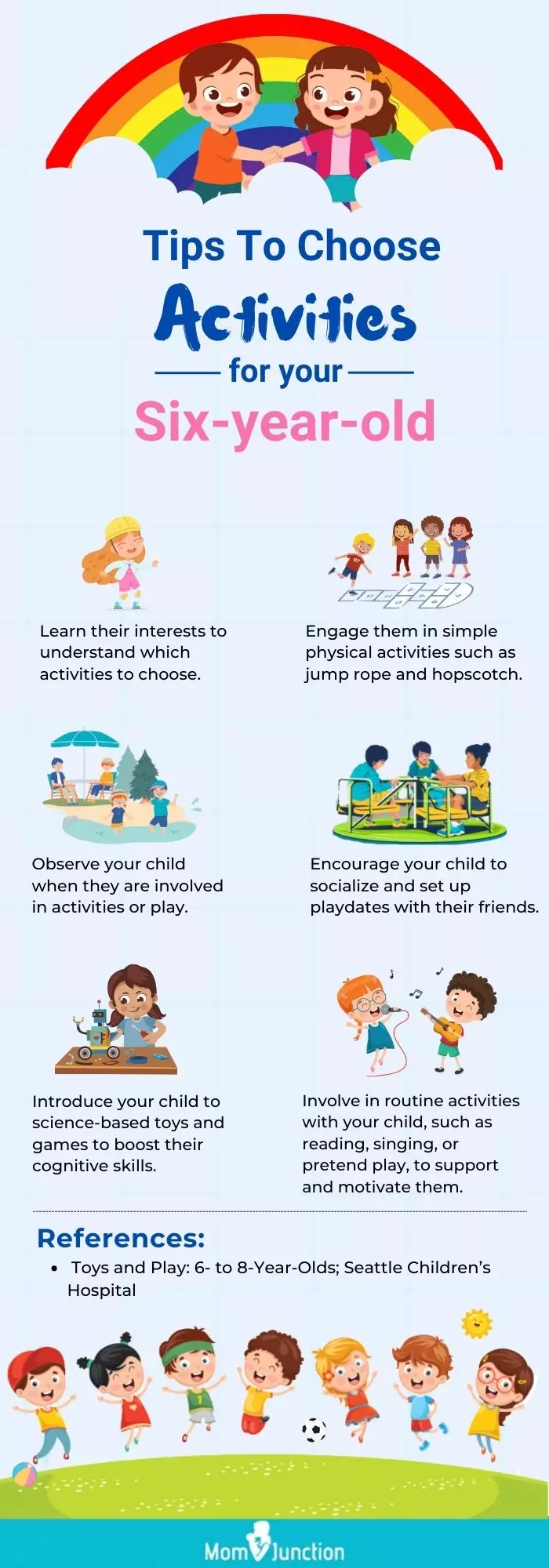
Illustration: Best Indoor And Outdoor Learning Activities For 6-Year-Olds

Image: Dalle E/MomJunction Design Team
Let your little ones explore the fascinating world of science with this fun sink and float activity! Perfect for 3-6 year olds, this kindergarten-level activity will keep them engaged and learning.
Personal Experience: Source
MomJunction articles include first-hand experiences to provide you with better insights through real-life narratives. Here are the sources of personal accounts referenced in this article.
i. Wild child: the benefits of camping to children.https://campingactivitiesforall.wordpress.com/2012/07/08/wild-child-the-benefits-of-camping-to-children/
References
- Prioritizing Play: The Importance of Play-based Learning in Early Education
https://ies.ed.gov/learn/blog/prioritizing-play-importance-play-based-learning-early-education - Language Games in Developing Speaking Skills
https://www.nepjol.info/index.php/rcj/article/download/51543/38532/152487 - Phonics Activities for Young Students
https://journal.imse.com/phonics-activities-for-young-students/ - Racing dragons and remembering aliens: Benefits of playing number and working memory games on kindergartners’ numerical knowledge
https://pubmed.ncbi.nlm.nih.gov/31587470/ - The art of creating: Why art is important for early childhood development
https://www.canr.msu.edu/news/the_art_of_creating_why_art_is_important_for_early_childhood_development - The Importance Of Drawing In Children’s Development
https://lovepaper.org/the-importance-of-drawing-in-childrens-development/ - Bringing Books to Life! Build Early Literacy Skills by Acting Out Stories
https://www.hanen.org/information-tips/bringing-books-to-life#:~:text=When%20you%20act%20out%20a - How Tactile Devices Can Improve Children’s Learning
https://education.illinois.edu/about/news-events/news/article/2024/05/23/how-tactile-devices-can-improve-children-s-learning - Why Is It Important to Read to Your Child?
https://childmind.org/article/why-is-it-important-to-read-to-your-child/#:~:text=The%20benefits%20of%20reading%20to - The Benefits of Riddles in Education
https://www.smileandlearn.com/en/the-benefits-of-riddles-in-education/ - Board games that help kids build key skills
https://www.understood.org/en/articles/board-games-that-help-kids-build-skills
Community Experiences
Join the conversation and become a part of our nurturing community! Share your stories, experiences, and insights to connect with fellow parents.
Read full bio of Dr. Elna Gibson
Read full bio of Harshita Makvana
Read full bio of Deepa Thomas
Read full bio of Nisha Bharatan








